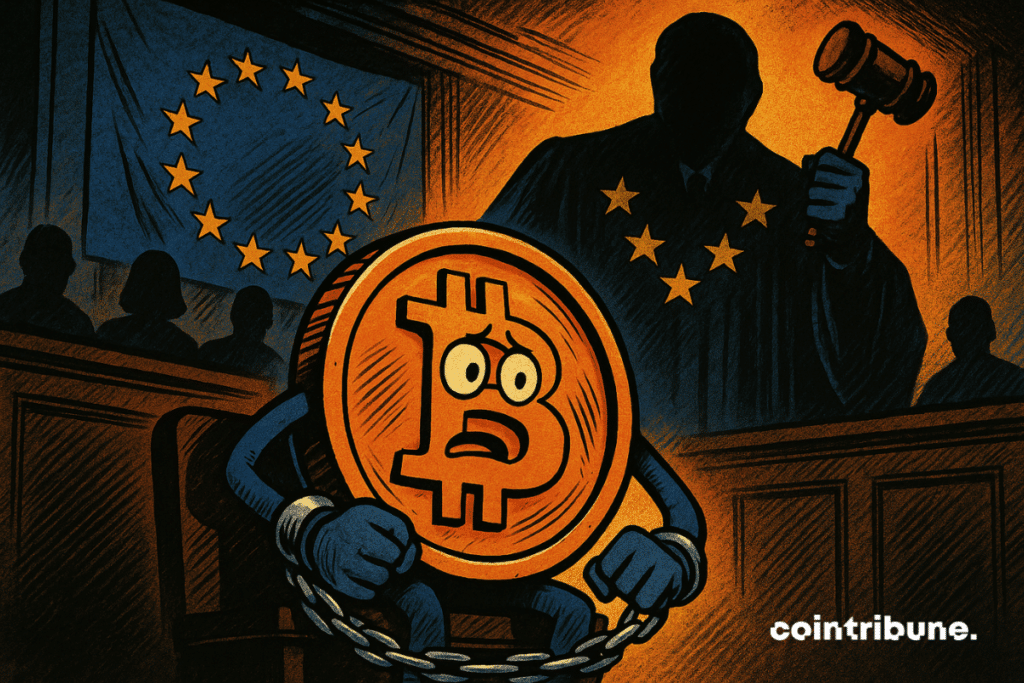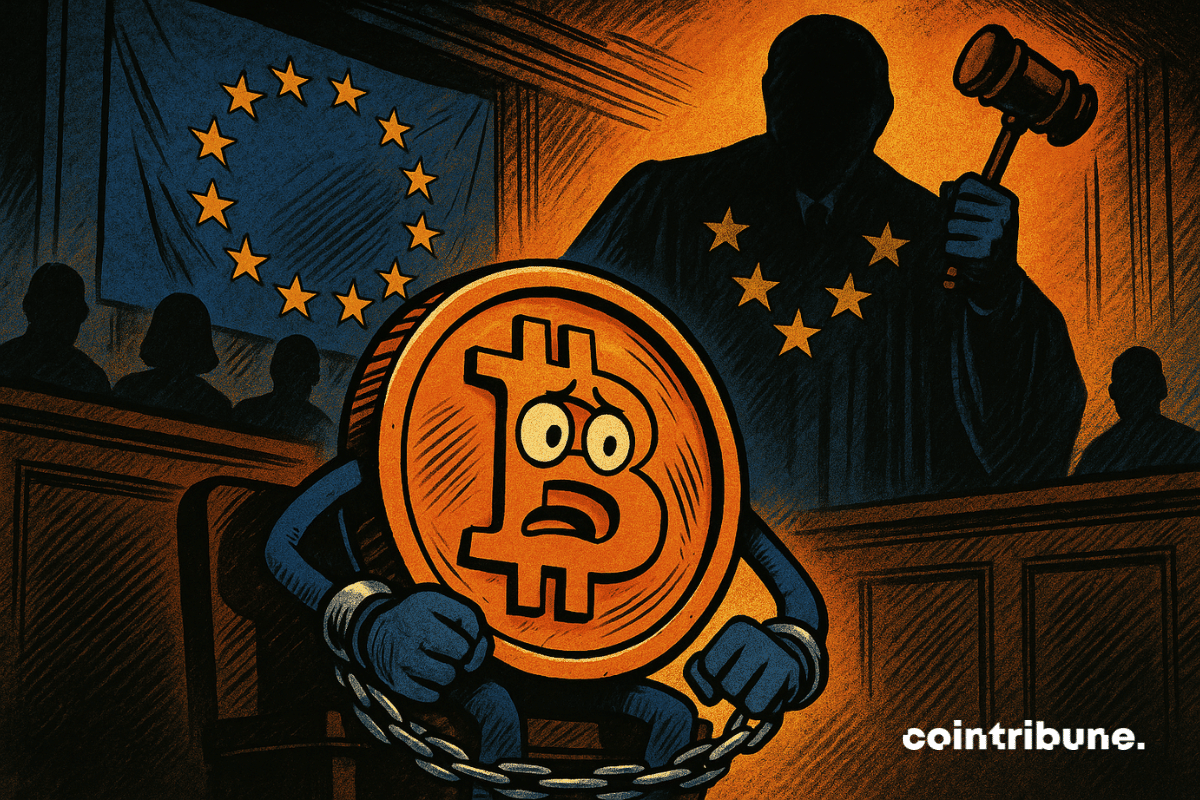The European Data Protection Committee (EDPB) has recently integrated the public key of bitcoins into the GDPR circuit and transformed each transaction into a legal matter. Without formally exclusion of cryptocurrency, this approach creates a shadow area that is difficult to cross.

In short
- The European Data Protection Committee assimilated public key from bitcoins to personal data and submits each transaction by RGPD restrictions.
- The impossibility of deleting the blockchain data comes into direct collision with the right to forget the GDPR.
- Without legal adaptation, bitcoin could become de facto in Europe, despite the absence of a formal ban.
EDPB decision with feared consequences for bitcoins
EDPB has decided that the public key is personal data, if it can identify, even indirectly, a natural person. This definition submits any bitcoins address to data protection obligations. In practice, each transaction is limited by European law.
The Committee then declares that the technical impossibility cannot be caused to justify non -compliance with GDPR. Thus, the non -changeability of bitcoin cannot apologize to the absence of the right to delete. GDPR requires data erase, but the string does not offer it.
Finally, the instructions evoke hypothetically the need to clear the data, even if it means radical measures. Some commentators interpret this as a possibility unless there are a technical solution, it is necessary that bitcoins are inaccessible or even consider erase.
This hypothesis illustrates the paradox between European law requirements and the nature of bitcoins.
Alexandre Stachtchenko alerts and the risk of de facto prohibition
Alexandre Stachchenko sounds an alarm. According to him:
If the instructions of the European Data Protection Committee are confirmed in their final version, it will no longer be in accordance with European right to use 100 % bitcoins.
For an expert, this situation is equivalent to a de facto bitcoin prohibition without reporting regulatory collisions. It underlines the absurdity of the frame where the technique (unchangeable blockchain) comes against the law (the right to delete).
Stachtchenko then describes in detail the practical restrictions:
- Bitcoin Public Key, described as personal data, concludes the network in GDPR.
- The impossibility of deleting blocks makes respect to the right to forget unrealizable.
- The design of anonymization of the on-alignment (mixers, zero knowledge) comes against the rules against banking.
Given the regulation of financial transfers (TFR 2023/1113), “private” blends and wallets are considered a high risk, with KYC from 1,000 euros. Amlr (2024/1624) prohibits any solution to support anonymity.
At national level, the French Act 20 March 2025 assumes any anonymous transaction as money washing.
This double command – respect GDPR or is subject to Anti -Whiteness sanctions – closes the users on a dead end. Without legal outcome, bitcoins The risk of actually becoming illegal in Europe.
EDPB’s public consultation remains open until June 9, 2025. It is essential for actors in the bitcoin ecosystem, Web 3 and politicians to actively participate in this consultation. Without adapting the legal framework it is the use of bitcoins – and wider public blockchains – which could become incompatible with European law.
Maximize your Cointribne experience with our “Read to Earn” program! For each article you read, get points and approach exclusive rewards. Sign up now and start to accumulate benefits.
Evariste, fascinated by Bitcoin since 2017, has not stopped documenting on this topic. If his first interest focused on trading, he now tries to actively understand all cryptocurrency progress. As an editor, he tries to permanently provide high quality work that reflects the condition of the sector as a whole.
Renunciation
The words and opinions expressed in this article are involved only by their author and should not be considered investment counseling. Do your own research before any investment decision.






